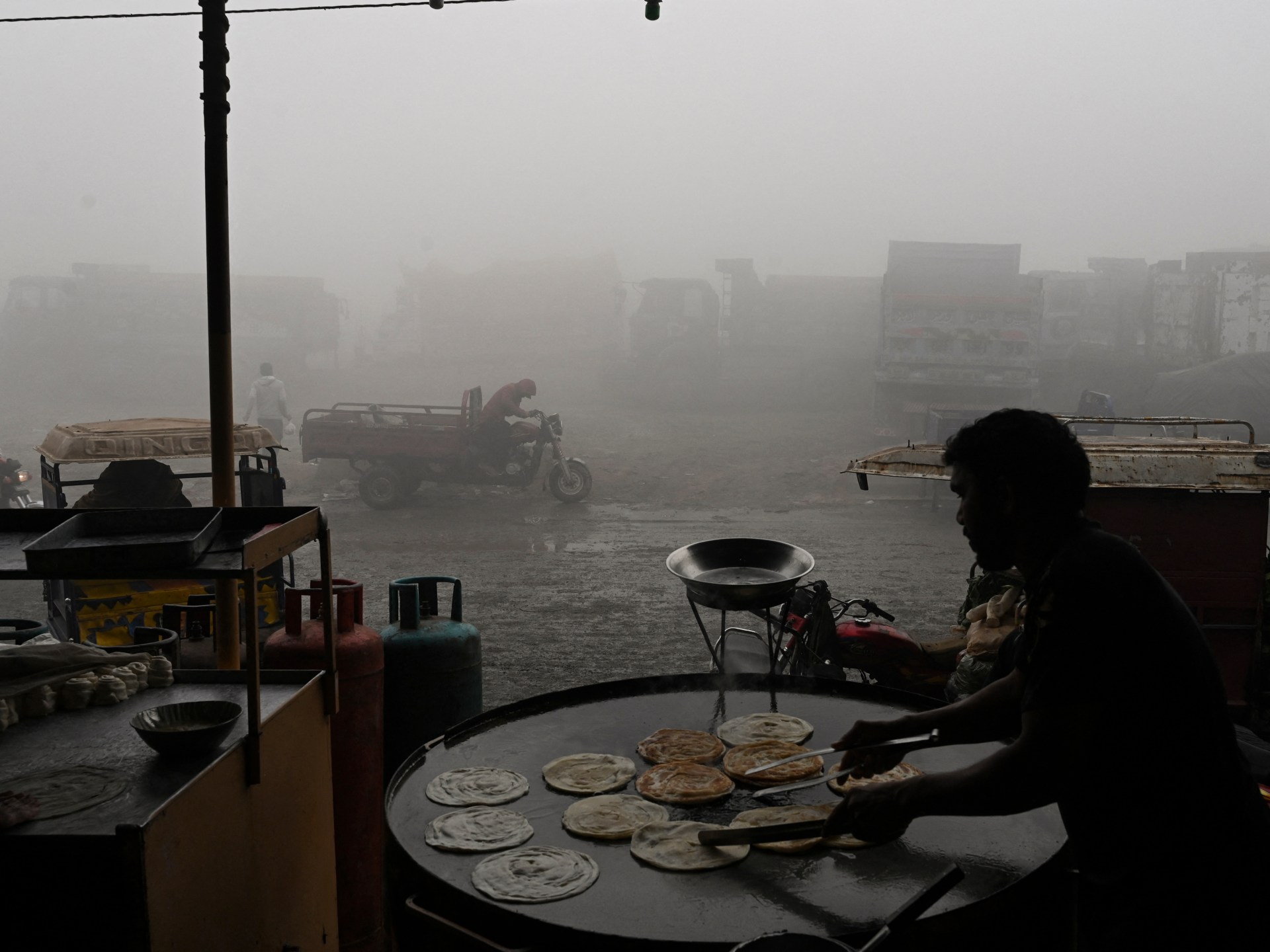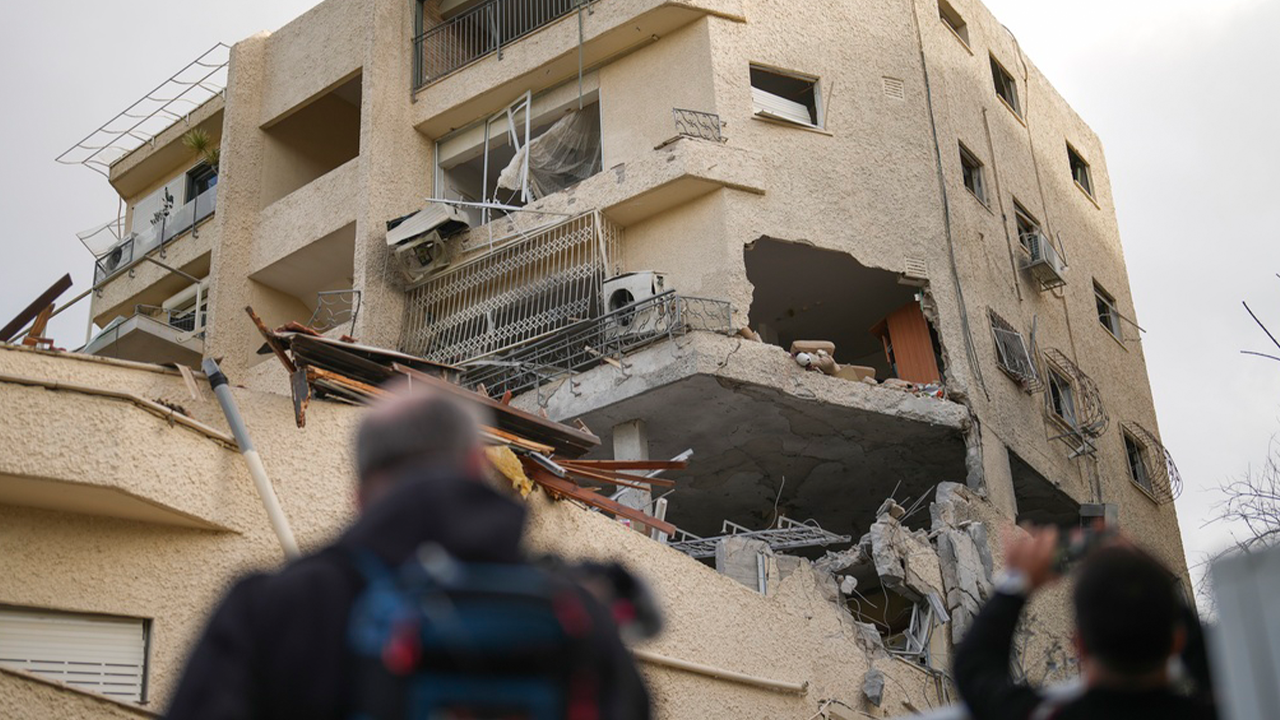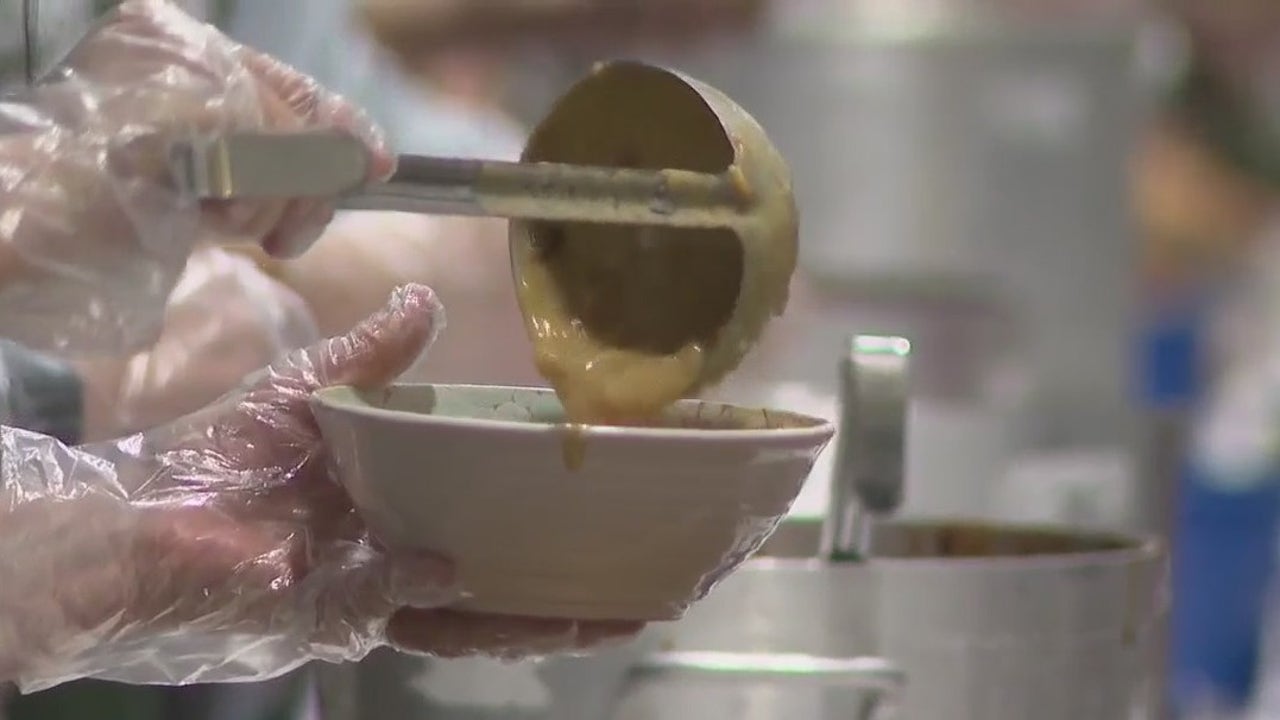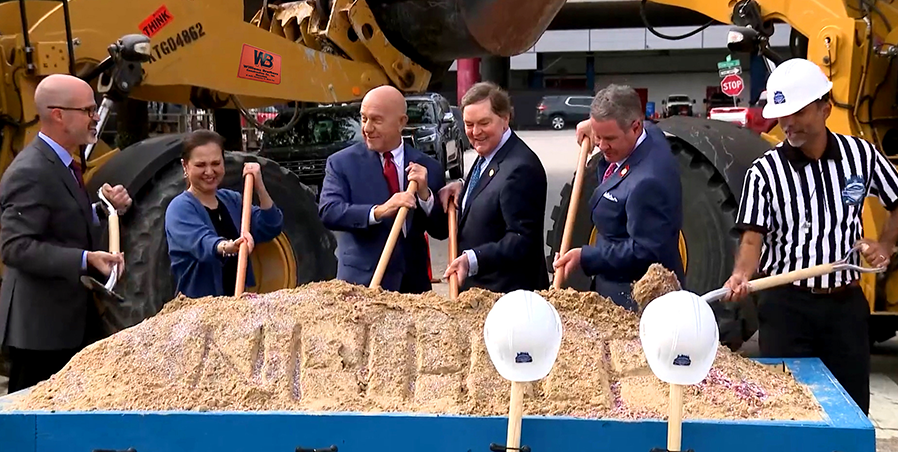World
Pakistan uses artificial rain for the first time to fight pollution

Cloud seeding was used to counter the hazardous smog in the megacity of Lahore, one of the world’s most polluted cities.
Artificial rain has been used for the first time in Pakistan in a bid to combat hazardous levels of pollution in the megacity of Lahore, says the provincial government.
Planes equipped with cloud-seeding equipment flew on Saturday over the eastern city, often ranked one of the worst places globally for air pollution.
“It drizzled in at least 10 areas of Lahore,” caretaker chief minister of Punjab, Mohsin Naqvi, told reporters, adding that the authorities were monitoring the impact of artificial rain in a radius of 15km (nine miles).
Air quality in Lahore has been particularly bad in the last few weeks and the Punjab government employed several tactics including the early closure of businesses and keeping schools off for two extra days to help improve the air quality – but nothing worked.
The “gift” was provided by the United Arab Emirates, Naqvi said.
“Teams from the UAE, along with two planes, arrived here about 10 to 12 days ago. They used 48 flares to create the rain,” he said.
Naqvi said the team would be able to assess the effects of the experiment by Saturday night.
The UAE has increasingly used cloud seeding, sometimes referred to as artificial rain or blueskying, to create rain in the arid expanse of the country.
In the cloud-seeding process, silver iodide, a yellowish salt, is burned in clouds in a compound with acetone to encourage condensation to form as rain.
Naqvi reassured the public of the safety of the artificial rain, citing more than 1,000 annual missions by the UAE and similar technologies used in dozens of countries, including the United States, China and India.
Lahore’s toxic smog
Even very modest rain is effective in bringing down pollution, experts have said.
Levels of PM2.5 pollutants – cancer-causing microparticles that enter the bloodstream through the lungs – were measured as hazardous in Lahore on Saturday at more than 66 times the World Health Organization’s danger limits.
Air pollution has worsened in Pakistan in recent years, as a mixture of low-grade diesel fumes, smoke from seasonal crop burn off and colder winter temperatures coalesce into stagnant clouds of smog.
Lahore has suffered the most from the toxic smog, choking the lungs of more than 11 million residents in Lahore during the winter season.
Breathing the poisonous air has catastrophic health consequences.
Prolonged exposure can trigger strokes, heart disease, lung cancer and respiratory diseases, according to the WHO.
The Pakistani authorities blame industrial emissions, smoke from brick kilns and vehicles, and the burning of crop residue and general waste for causing air pollution and smog in the central Punjab province.
Naqvi said that there would be more instances of artificial rain in the city, in which smog towers – large-scale air purifiers designed to capture pollution – would also be installed in the coming weeks.
Growing industrialisation in South Asia in recent decades has driven an increase in pollutants emanating from factories, construction activity and vehicles in densely populated areas.
The problem becomes more severe in cooler autumn and winter months, as temperature inversion prevents a layer of warm air from rising and traps pollutants closer to the ground.
Rising air pollution can cut life expectancy by more than five years per person in South Asia, one of the world’s most polluted regions, according to a report published in August which flagged the growing burden of hazardous air on health.
Pakistan is responsible for less than 1 percent of global carbon emissions but is among the top 10 most climate-vulnerable nations.

World
Trump's FDA Pick Is Surgeon and Writer Martin Makary
World
Israel moves towards ceasefire deal with Hezbollah: reports

Israel is reportedly moving towards a ceasefire agreement with Hezbollah in Lebanon after nearly a year of fighting escalated into an all-out war in September.
Israeli media outlets including YNET and Haaretz have reported that Israel has tentatively agreed to a U.S.-backed proposal for a ceasefire. No final deal has been reached, according to the reports.
Journalists take pictures of a building hit direct by a rocket fired from Lebanon in Haifa, Israel, Sunday Nov. 24, 2024. (AP Photo/Francisco Seco)
Lebanon and the militia group Hezbollah reportedly agreed to the deal last week but both sides need to give the final okay before it can materialize.
The reported ceasefire deal comes after Hezbollah launched one of its largest rocket attacks on Israel in exchange for Israeli forces striking Hezbollah command centers in Beirut.
This is a developing story. Check back for updates.
World
Yamandu Orsi wins Uruguay’s run-off presidential election

Yamandu Orsi, the candidate for the left-wing Broad Front coalition, is projected to emerge victorious in Uruguay’s run-off election for the presidency.
He bested Alvaro Delgado of the ruling National Party to win the tightly fought race, though public opinion polls showed the two candidates in a dead heat in the lead-up to Sunday’s vote.
Orsi’s supporters took to the streets in the capital of Montevideo, as the official results started to show the former mayor and history teacher surging ahead.
Many waved the party banner: a red, blue and white striped flag with the initials FA for “Frente Amplio”, which translates to “Broad Front”.
“Joy will return for the majority,” the coalition posted on social media as Orsi approached victory. “Cheers, people of Uruguay.”
Orsi’s win restores the Broad Front to power in the small South American country, sandwiched on the Atlantic coast between Brazil and Argentina.
For 15 years, from 2005 to 2020, the Broad Front had held Uruguay’s executive office, with the presidencies of Jose Mujica and Tabare Vazquez, the latter of whom won two non-consecutive, five-year terms.
But that winning streak came to an end in the 2019 election, with the victory of current President Luis Lacalle Pou, who led a coalition of right-leaning parties.
Under Uruguay law, however, a president cannot run for consecutive terms. Lacalle Pou was therefore not a candidate in the 2024 race.
Running in his stead was Delgado, a former veterinarian and Congress member who served as a political appointee in Lacalle Pou’s government from 2020 to 2023.
Even before the official results were announced on Sunday, Delgado had conceded, acknowledging Orsi’s victory was imminent.
“Today, the Uruguayans have defined who will hold the presidency of the republic. And I want to send here, with all these actors of the coalition, a big hug and a greeting to Yamandu Orsi,” Delgado said in a speech as he clutched a large Uruguayan flag in his hand.
He called on his supporters to “respect the sovereign decisions” of the electorate, while striking a note of defiance.
“It’s one thing to lose an election, and another to be defeated. We are not defeated,” he said, pledging that his right-wing coalition was “here to stay”.
The outgoing president, Lacalle Pou, also reached out to Orsi to acknowledge the Broad Front’s victory.
“I called [Yamandu Orsi] to congratulate him as president-elect of our country and to put myself at his service and begin the transition as soon as I deem it pertinent,” Lacalle Pou wrote on social media.

Orsi had been considered the frontrunner in the lead-up to the first round of the elections.
Originally from Canelones, a coastal regional in the south of Uruguay, Orsi began his career locally as a history teacher, activist and secretary-general of the department’s government. In 2015, he successfully ran to be mayor of Canelones and won re-election in 2020.
In the 2024 presidential race, Orsi – like virtually all the candidates on the campaign trail – pledged to bolster Uruguay’s economy. He called for salary increases, particularly for low-wage workers, to grow their “purchasing power”.
He also called for greater early childhood education and employment programmes for young adults. According to a United Nations report earlier this year, nearly 25 percent of Uruguay’s children live in poverty.
But the economy was not the only issue at the forefront of voters’ minds. In a June survey from the communications firm Nomade, the largest share of respondents – 29 percent – identified “insecurity” as Uruguay’s “principal problem”.
That dwarfed the second-highest ranked topic: “Unemployment” was only picked by 15 percent of respondents.
As part of his platform, Orsi pledged to increase the police force and strengthen Uruguay’s borders, including through the installation of more security cameras.
As he campaigned, Orsi enjoyed the support of former President Mujica, a former rebel fighter who survived torture under Uruguay’s military dictatorship in the 1970s and ’80s.
Mujica remains a popular figure on Uruguay’s left, best known for his humble living arrangements that once earned him the moniker of the “world’s poorest president”.

In the first round of voting, on October 27, Orsi came out on top, with 44 percent of the vote to Delgado’s 27 percent. But his total was far short of the 50 percent he needed to win the election outright, thereby triggering a run-off.
The race got tighter from there forward. Only two candidates progressed to the run-off – Delgado and Orsi – and Delgado picked up support from voters who had backed former Colorado Party candidate Andres Ojeda, a fellow conservative who was knocked out in the first round.
Nevertheless, Orsi quickly pulled ahead after the polls closed for the run-off election on Sunday.
“The horizon is brightening,” Orsi said in his victory speech. “The country of freedom, equality and also fraternity triumphs once again.”
-

 Business1 week ago
Business1 week agoColumn: Molly White's message for journalists going freelance — be ready for the pitfalls
-

 Science5 days ago
Science5 days agoTrump nominates Dr. Oz to head Medicare and Medicaid and help take on 'illness industrial complex'
-

 Politics1 week ago
Politics1 week agoTrump taps FCC member Brendan Carr to lead agency: 'Warrior for Free Speech'
-
/cdn.vox-cdn.com/uploads/chorus_asset/file/25739950/247386_Elon_Musk_Open_AI_CVirginia.jpg)
/cdn.vox-cdn.com/uploads/chorus_asset/file/25739950/247386_Elon_Musk_Open_AI_CVirginia.jpg) Technology6 days ago
Technology6 days agoInside Elon Musk’s messy breakup with OpenAI
-

 Lifestyle1 week ago
Lifestyle1 week agoSome in the U.S. farm industry are alarmed by Trump's embrace of RFK Jr. and tariffs
-

 World1 week ago
World1 week agoProtesters in Slovakia rally against Robert Fico’s populist government
-

 News7 days ago
News7 days agoThey disagree about a lot, but these singers figure out how to stay in harmony
-

 News1 week ago
News1 week agoGaetz-gate: Navigating the President-elect's most baffling Cabinet pick


















